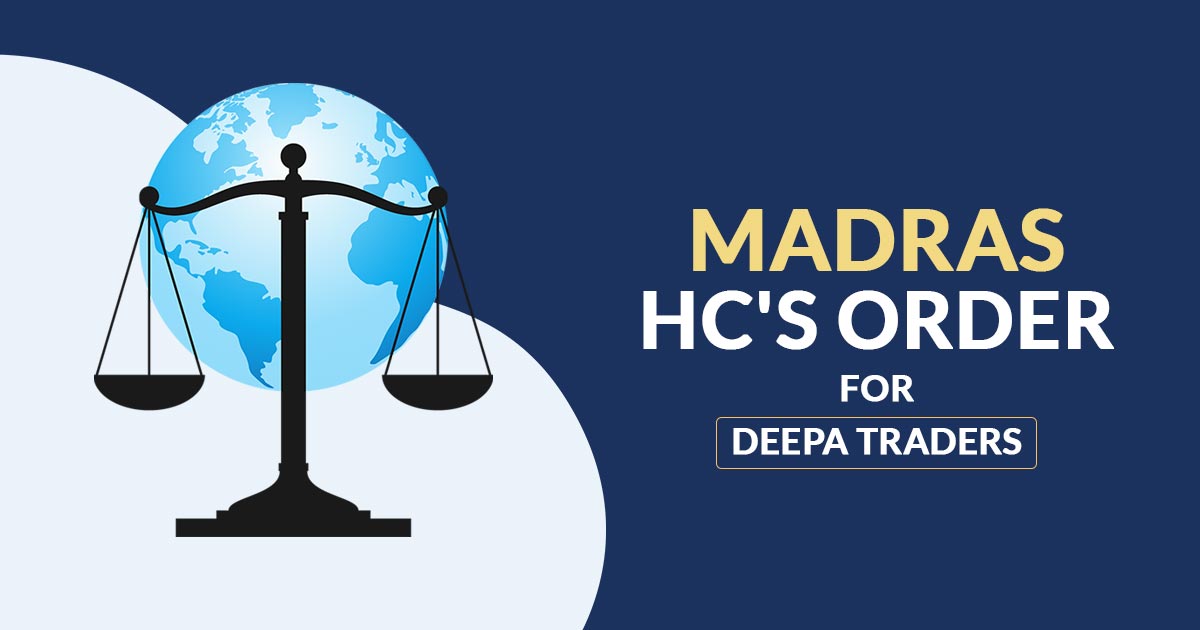
The Madras High Court has ruled that mistakes are not done deliberately or with any intention. The modification, as a matter of fact, would allow relevant reporting of the ITC and turnover. This will permit the claims to be presented accurately by the applicant.
The single bench of Justice Anita Sumanth has learned that the petitioner can get the benefits of error correction without any deceptive feature.
The petitioner is a dealer of metal and steel scrap under the provisions of the CGST Act, 2017. It asks for directions from the council or respondent to enable the applicant to improve the clerical errors in the uploaded details through Form GSTR-1 for the duration of 2017–18 and makes the revisions to the forms. The petitioner has committed some errors concerning the returns from a few months in 2017–18.
These errors were GSTIN, the name of the recipient was not correct, the invoice number and date were inaccurate, supply details were mentioned in GSTR 3, and the tax was cancelled. Yet, it is required for some of the invoice-wise details to be excluded from Form GSTR 1. The heads of SGST and CGST cancelled the IGST unintentionally.
This malpractice was considered an accident by a part-time accountant later hired by the petitioner. Since the error was committed when the GST was in its initial phase, a lack of knowledge of the situations to fulfil the demands of the system was common.
Read Also: Restriction on GST ITC Usage Can’t Be More than Year Under Rule 86A
The court ordered the applicant to allow the modified GSTR 1 upload within six weeks.
| Case Title | Deepa Traders Versus Principal Chief Commissioner of GST & Central Excise |
| Citation | W.P.No.12382 of 2020 |
| Date | 09.03.2023 |
| Counsel for Petitioner | Sriharini |
| Counsel for Respondent | A.P.Srinivas |
| Madras HC | Read Order |








